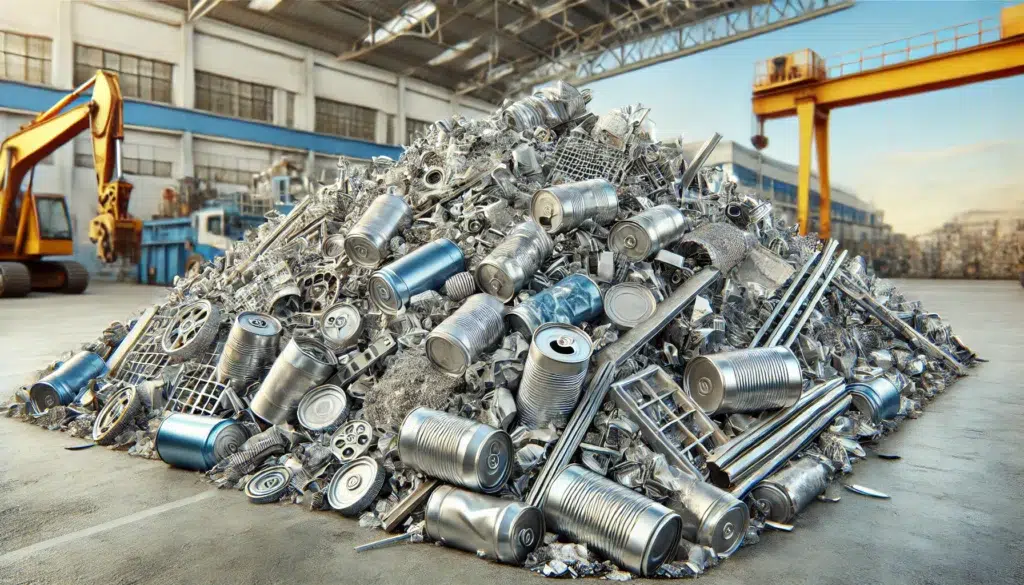Table of Contents
The Impact of Aluminum Scrap Prices on the Recycling Industry
Aluminum Scrap Prices, The recycling industry is a dynamic sector, constantly influenced by market trends and the fluctuating prices of materials. Among these materials, aluminum holds a significant place. From construction to manufacturing, aluminum scrap serves as a valuable resource for both environmental sustainability and economic opportunity. As we delve into the intricate relationship between aluminum scrap prices and the recycling industry, it’s essential to understand how different types of aluminum scrap—like Aluminum Engine Block Scrap or Aluminum Radiator Scrap—impact not only recyclers but also consumers and small businesses alike.
So whether you’re an avid recycler or simply curious about how your discarded items contribute to this growing economy, let’s explore the multifaceted effects of aluminum scrap prices on various aspects of our world!
How to Identify and Sort Different Types of Aluminum Scrap
Identifying and sorting aluminum scrap can be straightforward with a keen eye. Begin by familiarizing yourself with the common types of aluminum, such as Aluminum Extrusion 6063, which is often used in window frames and furniture.
Next, look for Aluminum UBC Scrap—used beverage cans that are lightweight and easily recyclable. These cans usually have a distinct shape that sets them apart from other metals.
Aluminum Wire Scrap comes in various gauges and forms. Pay attention to its insulation; stripped wire is more valuable than insulated versions due to easier recycling processes.
Then there’s the prized Aluminum Radiator Scrap, typically found in vehicles. Recognizing this type can lead to higher returns when selling your scrap.
Lastly, always check for mixed alloys or coatings that may affect value. Keeping these categories organized will streamline your recycling efforts significantly!
How Recycling Aluminum Reduces Carbon Emissions
Recycling aluminum plays a crucial role in reducing carbon emissions. The process requires significantly less energy compared to producing new aluminum from raw materials. This means fewer fossil fuels are burned, leading to lower greenhouse gas emissions.
When you recycle aluminum, such as Aluminum Engine Block Scrap or Aluminum Radiator Scrap, you give new life to old metal without the intensive mining and refining processes that typically generate high levels of CO2.
Each ton of recycled aluminum saves approximately 9 tons of carbon dioxide emissions. That’s a considerable impact when scaled across industries and communities.
Moreover, recycling keeps valuable resources out of landfills and minimizes the need for virgin material extraction. It creates a circular economy where waste is transformed into reusable products while conserving energy and protecting our environment.
Every piece counts; even small amounts like Aluminum Wire Scrap make a difference in this collective effort toward sustainability.
The Economic Benefits of Selling Aluminum Scrap Online
Selling aluminum scrap online opens up a world of economic opportunities for individuals and businesses alike. With just a few clicks, sellers can connect with buyers who are actively seeking materials like aluminum engine block scrap or aluminum radiator scrap.
The convenience of online platforms minimizes operational costs. Sellers save on fuel and transportation expenses by reaching local and national markets without leaving home. This access allows for competitive pricing based on the current market demand.
Furthermore, online sales often lead to quicker transactions. Sellers receive payments faster than traditional methods might allow, improving cash flow for small businesses that rely on quick turnover.
Promoting their offerings through digital channels also enhances visibility. Whether it’s aluminum extrusion 6063 or aluminum UBC scrap, effective marketing strategies can attract more potential buyers, driving higher profits while promoting sustainability in recycling efforts.
What Factors Affect the Price of Aluminum Scrap
Several factors influence aluminum scrap prices. Global demand plays a significant role. When industries ramp up production, the need for raw materials increases, pushing prices higher.
Market conditions also matter. Economic fluctuations can lead to price volatility in metals, including scrap aluminum. Political stability or instability in producing regions impacts supply chains and costs as well.
Quality is crucial too. Clean, high-grade material like Aluminum Engine Block Scrap fetches better prices than mixed or contaminated types such as Aluminum Radiator Scrap or Aluminum UBC Scrap.
Transportation costs can’t be ignored either. The distance from collection points to recycling facilities affects overall pricing dynamics.
Lastly, seasonal trends affect availability and demand cycles throughout the year, influencing how much buyers are willing to pay at any given time.
How Aluminum Scrap Fuels Innovative Small Businesses
The recycling industry thrives on innovation and creativity, especially when it comes to aluminum scrap. Small businesses are stepping up to transform everyday materials into valuable resources. By focusing on items like aluminum engine block scrap and aluminum radiator scrap, these enterprises not only contribute to environmental sustainability but also create new market opportunities.
Many entrepreneurs have discovered niches that revolve around specific types of aluminum, such as Aluminum Extrusion 6063 or Aluminum Wire Scrap. They often engage in creative processes that turn waste into something useful—be it custom designs for existing products or entirely new inventions born from recycled materials.
These small businesses play a crucial role in driving the economy forward. They provide jobs, promote local economies, and encourage community participation in recycling efforts. As they innovate with various types of aluminum scraps, they’re paving the way for more sustainable practices across industries.
As demand for recycled aluminum grows amid rising prices for raw materials, small operations find themselves at a pivotal moment where their contributions become increasingly significant. The relationship between high-quality recycled materials and innovative solutions is reshaping traditional business models while highlighting the importance of resourcefulness.
Through ingenuity and dedication to sustainability, these ventures exemplify how the recycling sector can be both an ecological necessity and a thriving economic opportunity. The future looks promising as more individuals recognize the potential within every piece of aluminum scrap waiting to be transformed into something extraordinary.

